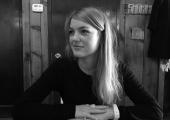First Person: novelist Pip Adam on the sound of injustice

Author Pip Adam describes how her time working in prisons and interest in the jurisprudence of noise gave life to her recent sci-fi novel, 'Audition'
I know it rattles me, so I try to prepare for it. But I am never fully prepared for the noise.








